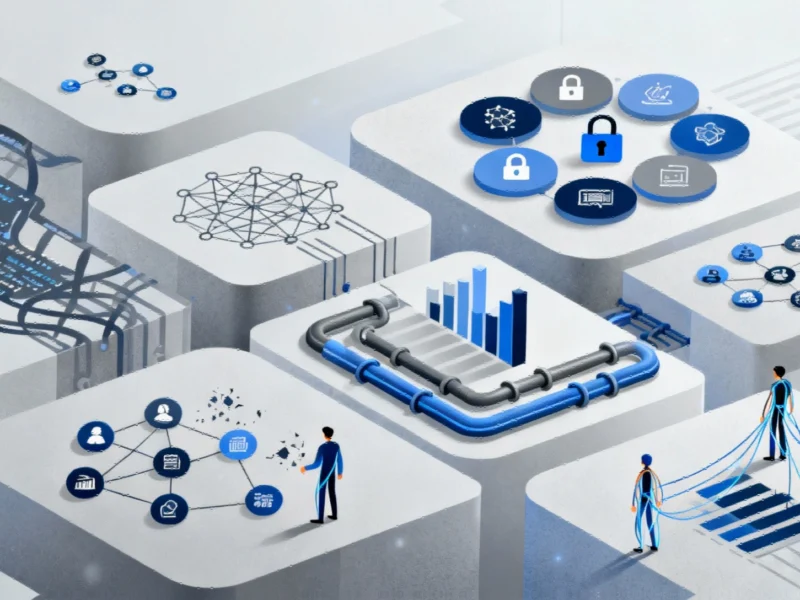Critical Skills Gap Threatens Ireland’s Tech Ambitions
Ireland’s burgeoning technology sector faces a critical juncture as new research reveals significant challenges in meeting both current and future skill demands. According to a comprehensive report from Scale Ireland, the nation must urgently address talent shortages or risk compromising its competitive edge in the global technology landscape. The findings come amid growing concerns about Ireland’s capacity to maintain its position as a European tech hub given the accelerating pace of digital transformation across industries.
Labor market experts Professor David Collings of Trinity Business School and Dr. Shirley Kavanagh, who spearheaded the “Future proofing Talent Supply in the Irish ICT Start-up and Scaling Sector” report, discovered that despite Ireland’s respectable performance in international skills comparisons, the country faces considerable challenges in supplying the indigenous IT sector with adequately skilled professionals. This situation mirrors global trends where enterprises are scrambling to adapt to rapidly evolving technological requirements.
Immediate Skill Shortages Hinder Growth
The report identifies acute shortages across several critical technical domains, with software development, artificial intelligence, cybersecurity, DevOps, and data analytics emerging as particularly problematic areas. Smaller enterprises and startups are feeling the pinch most severely, struggling to compete with larger corporations for limited technical talent.
Beyond technical capabilities, employers are increasingly seeking professionals with strong transversal skills including leadership, complex problem-solving, adaptability, and analytical thinking. These complementary skills have become essential as organizations navigate the complexities of digital transformation, similar to broader economic priorities seen in other developed nations addressing their industrial strategies.
Projected Growth Demands Urgent Action
Looking toward 2030, baseline analytics project an additional 89,590 positions will emerge within Ireland’s ICT sector, creating potentially severe supply issues if current trends continue. The most pronounced shortages are expected in cutting-edge fields including AI, machine learning, network infrastructure, cybersecurity, and technological literacy.
As the sector expands, demand will also grow for professionals skilled in the evolving regulatory landscape, particularly those capable of overseeing ethical compliance in artificial intelligence and digital policies. This regulatory dimension highlights the increasing complexity of talent requirements in modern tech ecosystems, a challenge that parallels digital development challenges observed in various international contexts.
Strategic Recommendations for Sustainable Growth
The report delivers a stark warning: “The overarching implication of our analysis is that what got us here won’t get us there in terms of the future competitiveness of the indigenous tech start-up and scaling sector.” This sentiment reflects the need for fundamental shifts in how Ireland approaches talent development and retention.
Key recommendations include:
- Comprehensive reskilling and upskilling initiatives for existing professionals
- Increased organizational investment in continuous training and development
- Expanded access to non-traditional educational pathways and career routes
- Strategic improvements to the work permit programme to enhance Ireland’s attractiveness as a career destination
These measures aim to position Ireland as a magnet for global tech talent while simultaneously developing domestic capabilities. The approach recognizes that in today’s interconnected digital economy, countries must compete for skilled professionals much like technology companies compete for consumer attention in lucrative markets.
Broader Implications for Ireland’s Economic Future
The success of Ireland’s tech sector has broader implications for the nation’s economic health and global positioning. As indigenous startups and scaling companies drive innovation and job creation, ensuring they have access to the right talent becomes crucial for sustained economic development.
The challenges identified in the report reflect wider global trends where technological advancement outpaces the development of corresponding skill sets. This dynamic creates competitive pressures similar to those faced by multinational corporations balancing global operations with localized strategies.
Ultimately, Ireland’s ability to proactively address these talent supply issues will determine whether the country can capitalize on its current momentum or risk being overtaken by more agile competitors in the global technology race. The time for strategic action is now, before skill shortages become a permanent constraint on innovation and growth.
Based on reporting by {‘uri’: ‘siliconrepublic.com’, ‘dataType’: ‘news’, ‘title’: ‘Silicon Republic’, ‘description’: ‘Silicon Republic is a leading source for technology, science and start-up news, information and resources for people who are passionate about STEM.’, ‘location’: {‘type’: ‘place’, ‘geoNamesId’: ‘2964574’, ‘label’: {‘eng’: ‘Dublin’}, ‘population’: 1024027, ‘lat’: 53.33306, ‘long’: -6.24889, ‘country’: {‘type’: ‘country’, ‘geoNamesId’: ‘2963597’, ‘label’: {‘eng’: ‘Ireland’}, ‘population’: 4622917, ‘lat’: 53, ‘long’: -8, ‘area’: 70280, ‘continent’: ‘Europe’}}, ‘locationValidated’: False, ‘ranking’: {‘importanceRank’: 357720, ‘alexaGlobalRank’: 74879, ‘alexaCountryRank’: 64884}}. This article aggregates information from publicly available sources. All trademarks and copyrights belong to their respective owners.



